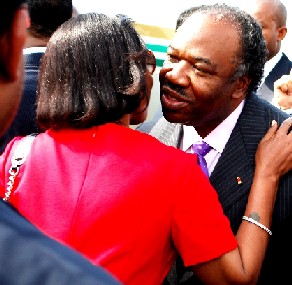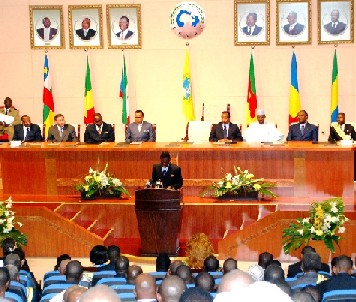|
Central Africa | Equatorial Guinea Politics | Society CEEAC parliament opened in Malabo
President Obiang Nguema Mbasogo of the host nation, Equatorial Guinea, received visiting state leaders and led the large inauguration festivities. "The integration of our countries should presume an African reneissance," President Obiang said in his inauguration speech yesterday.
Equatoguinean President Obiang welcomed the parliamentarians, describing the opening of the regional parliament as a "historic event". He also thanked his colleagues for granting Equatorial Guinea the opportunity to house this institution and to "take such an important responsibility." "This is a very important occasion for my nation," said Mr Obiang. He promised to offer all possible assistance to CEEAC parliamentarians in their "work to consolidate democracy, dialogue and tolerance for the sake of our nations and to develop our activities in total transparency." Congolese President Sassou Nguesso, the current leader of the rotating CEEAC presidency, in his speech said that "the opening of the common parliament is a result of our expressed joint willingness towards this institution." He declared that the goal of the CEEAC integration and cooperation was that all countries in the region should be "emerging economies by 2025." With the opening of the CEEAC parliament, the Central African region takes one step closer to regional integration. CEEAC has however been considered a much looser cooperation area than the more established SADC, East Africa's EAC and West Africa's ECOWAS, with a greater emphasis on symbolic institutions and less emphasis on content or results. By staff writers © afrol News - Create an e-mail alert for Central Africa news - Create an e-mail alert for Equatorial Guinea news - Create an e-mail alert for Politics news - Create an e-mail alert for Society news
On the Afrol News front page now
|
front page
| news
| countries
| archive
| currencies
| news alerts login
| about afrol News
| contact
| advertise
| español
©
afrol News.
Reproducing or buying afrol News' articles.
You can contact us at mail@afrol.com









